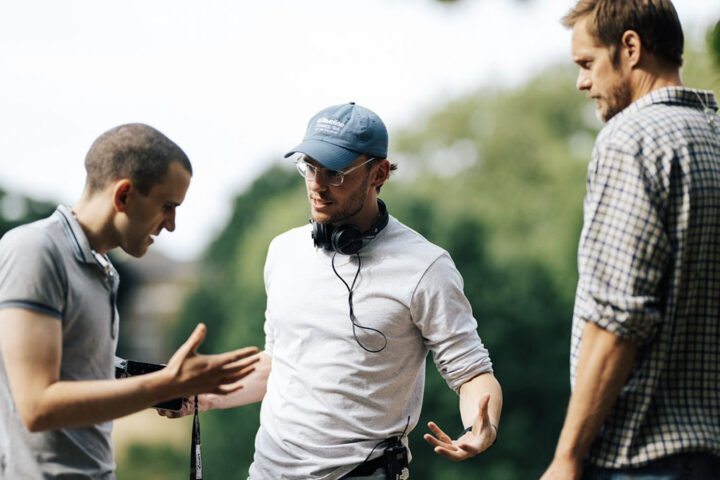Capturing this year’s prestigious Palme d’Or at Cannes, Ruben Östlund’s tremendously enjoyable class comedy Triangle of Sadness is a merciless skewering of jet set wealth and privilege landing on something resembling the class warfare of Lina Wertmuller’s 1974 classic Swept Away. In four decades since that picture’s release, the victors and spoils of capitalism haven’t changed much, and still make for a ripe good time, particularly when fortunes are inevitably reversed.
Östlund, whose 2014 art house hit Force Majeure took aim at male ego, fragility and gender roles in marriage and parenting (and also took the Palme d’Or), followed that critical success with the art world satire The Square, and here he cements his reputation as a thematically ambitious cultural satirist, and one, for the most part, on the side of the beleaguered underclass.
A bold film likely to elate some audiences and confound others, Triangle of Sadness opens with a terrific debate between a pair of young lovers for the social age—successful runway model and influencer named Yaya (the late Charlbi Dean) and her less successful model boyfriend, Carl (Harris Dickinson), debating who’ll pick up the check in a tony eatery. Immediately, Östlund establishes the have and have not theme of who has money, who doesn’t, who expects what and who is exploiting whom.
These themes will play out writ large once the couple finds themselves on a crème de la crème Mediterranean yacht cruise with a few dozen uber wealthy passengers, all various versions of the same—too rich, too bored, too lazy, too useless and too demanding. Östlund lampoons the lifestyles of the rich with aplomb, mining laughs from the all white passengers who have, among other things, made fortunes developing grenades, lived high as a Russian oligarch with both wife and mistress on board, and for another, made a fortune in tech only to remain a bachelor, unlucky in love.
Regardless of what these vapid braggarts should request, the answer is always “yes,” instructs Chief Steward Paul (a sensational Vicki Berlin). At one juncture, the entire cabin crew must swimsuit-up for slide into the sea, a major inconvenience requested by a comically clueless harridan. Comply they do, and why? Money, money, money, in the form of big tips. None of the passengers pay mind to their often ridiculous requests of the working staff, oblivious to their taxing demands.
The captain, a “socialist” drunkard American played by Woody Harrelson, wishes as little contact with the pleasure cruisers as possible, eschewing requisite interactions, including safety briefings, in favor of hiding in his cabin. But during a raucous “captain’s dinner” during a violent rainstorm, the passengers are fed hilariously decorative and fancy cuisine which includes spoiled seafood, and Östlund’s disdain for the elite comes to full flower in a chorus of vomit, defecation and exploding sewage. How he treats the billionaire’s wife, particularly, is savage comeuppance in the extreme. In the midst of the melee is a very funny argument over the ship’s intercom between captain and oligarch debating the merits of capitalism (the Russian) versus socialism (the captain), sending passengers into a panic after an erroneous, drunken outburst warning that the ship is going down. Did I mention that actual pirates show up?
For its first two-thirds, the nearly 2.5 hour Triangle of Sadness is a roaring good time in its assassination of the rich, callous, obtuse and useless, all inextricably linked. Its final third, nodding to Wertmuller and and introducing an exciting character named Abigail (Dolly de Leon), a cleaner who survives the shipwreck and because of her survivalist savvy becomes the defacto leader of a new social order, it becomes something more familiar, though its oblique conclusion both reinforces its earlier notions about exploitation and proffers but a radical method of eradicating such ingrained, capitalist, rich-poor hierarchies and power structures. In these stretches, the picture takes aim at the underclass as well, where bribes of Rolex watches and sexual favors for survival, as Abigail takes a shine to Carl and makes him her love slave of sorts, are very much the currency of survival. The players and rules have changed, but the game remains very much the same.
One of the year’s best movies.
4 stars.



